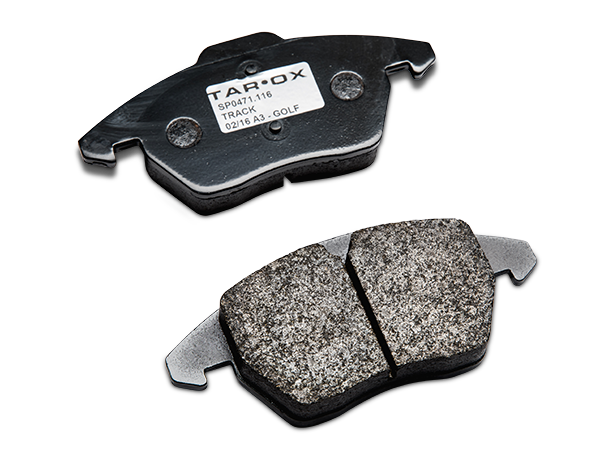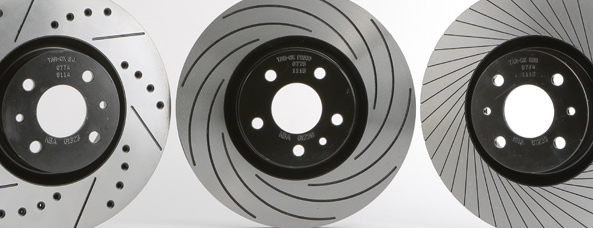PASTIGLIE FRENO
Road, Track or Race.
Tre tipi di pastiglie freno formulate, sviluppate e collaudate per offrire prestazioni di altissimo livello senza compromettere la durata del disco freno.
Sviluppate appositamente per TAROX le mescole a catalogo combinano prestazioni e modulabilità del pedale.
- La mescola Strada (.112) offre caratteristiche di comfort identiche all’ originale ma con migliori prestazioni
- La mescola Corsa (.114) è la scelta ideale per le giornate in pista: prestazioni eccezionali senza preriscaldamento
- Disponibile per la maggior parte delle applicazioni a catalogo
- La mescola Competizone (.116) per prestazioni assolute senza compromessi.
Explore Brake Pads
Foundation for excellence
We always start with the absolute highest level of raw materials. The bare cast iron rotors that are the foundation of any of our performance discs are always European sourced from the best foundries and where possible using a cast with the highest possible carbon content. From this base we can then apply processes of which we have had 33 years of experience of perfecting.
Our first process is always heat treatment, known to offer big improvement to how cast iron behaves. The benefits are great but so is the time-cost and infrastructure involved, making TAROX unique in this approach.
What the metal industry experts say about the benefits of
heat treatment:
The heat treatment of gray irons can considerably alter the matrix microstructure with little or no effect on the size and shape of the graphite achieved during casting.
‘’Gray iron is normalized by being heated to a temperature above the transformation range, held at this temperature for a period of about 1 hour per inch of maximum section thickness, and cooled in still air to room temperature. Normalizing may be used to enhance mechanical properties, such as hardness and tensile strength’’- Source
‘’Normalizing heat treatments for castings: The process can be employed on cast products to homogenize grain structure, improve machinability and response to subsequent heat treating processes. The normalizing process is commonly applied to carbon and alloy steel castings in order to refine grain structure and produce a more uniform distribution of carbon content throughout the material after the casting process. During normalizing, castings are typically heated to a temperature slightly above the austenitizing temperature to promote atomic mobility that enhances homogenization of the steel. The final result is a casting that will machine more easily and have more uniform micro-structure. Normalized castings respond to heat-treating better and have more uniform mechanical properties.’’
Source
CNC work
Each new application gets a custom designed CNC program for each TAROX disc design, to ensure any modifications do not affect structural integrity. For instance, when designing a program for our Sport Japan brake disc – which features fully drilled holes – it is essential to not fully drill where a hole may foul an internal structure vane while ensuring as many holes as possible allowing air to flow in between the channels of the internal cooling structure. This is again a time consuming and costly process and one of the reason performance disc manufactures only use a dimple – which does not allow air to move from the surface in to the internal cooling channels. Any drilled hole on a TAROX disc is countersunk to prevent against cracking.
Our G88 has a unique look and amazing road performance. It features 40 radial grooves on each side – rather than a slots – as they are channeled using a custom machine designed and manufactured in house allowing us to achieve a surface that does not compromise pad life but offers performance of a drilled disc but with the structural benefits of a slotted disc.
Final balance and polish
The final stage and one that really sets a TAROX disc apart is the hand finishing. Each and every brake disc before they are ready to ship are balanced on a specialist machine which perfectly balances the discs to 0.001 – ensuring the flattest disc on the market. The process of achieving a perfectly flat surface not only enables the brake pad to bed in quicker and more effectively but reduces chances of the disc developing lateral oscillation (run out) – A perfectly machines part with a high shine which oozes quality is just the icing on cake.
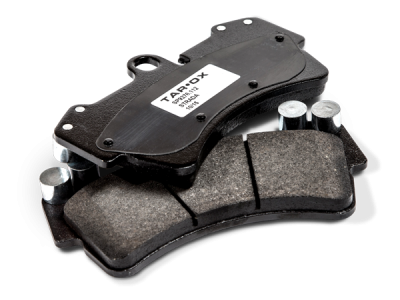
• STRADA .112
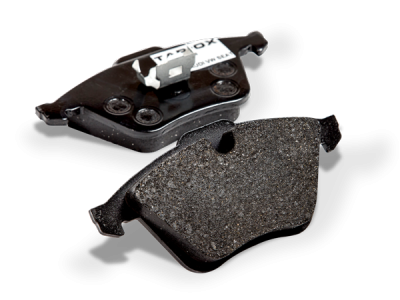
• CORSA .114
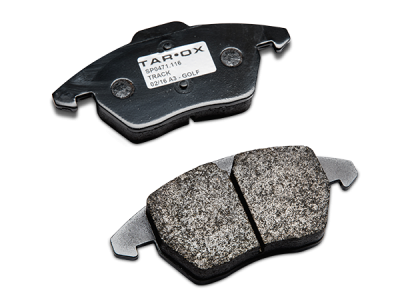
• COMPETIZIONE .116
STRADA .112
Per l’ uso quotidiano con qualcosa in più.
Progettate e collaudate per uso prevalentemente stradale sono disponibili per la maggior parte delle vetture a catalogo. Offrono ottime prestazioni anche senza pre-riscaladamento e a basse velocita’.
A differenza di altre pastiglie ad alte prestazioni sono caratterizzate da un alto indice di modulabilita’ del pedale che consentono un controllo totale dell’ azione frenante.
Funzionano al meglio con temperature comprese tra 200°C e 300°C e sono in grado di sopportare temperature fino a 600°C.
Coefficiente di attrito:
Normale 0.37
A caldo 0.42
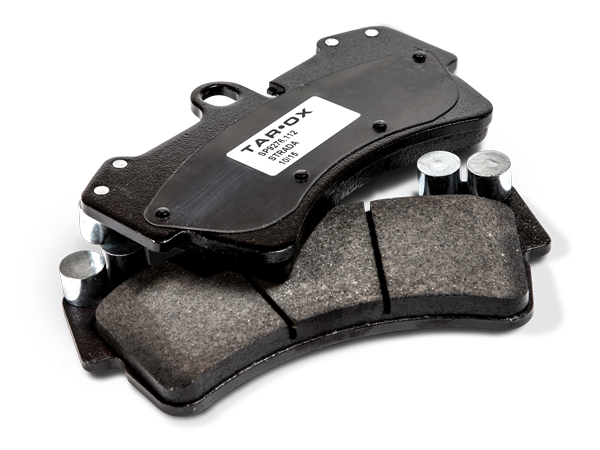
CORSA .114
Prestazioni ad alto livello su strada e in pista.
Progettate e collaudate per gli appassionati delle giornate in pista , offrono prestazioni ad alto livello sia nel normale uso stradale sia in una impegnativa sessione in pista. A differenza delle pastiglie da competizione tradizionali funzionano perfettamente a freddo pur offrendo un elevato coefficiente di attrito.
Su strada e in pista offrono assoluta stabilita’ termica e assenza di fading mentre il basso livello di comprimibilita’ garantisce un pedale sempre pronto e modulabile.
Sopportano temperature fino a 800°C offrendo il meglio tra 200°C e 400°C.
Coefficiente d’ attrito:
Normale 0.47
A caldo 0.49
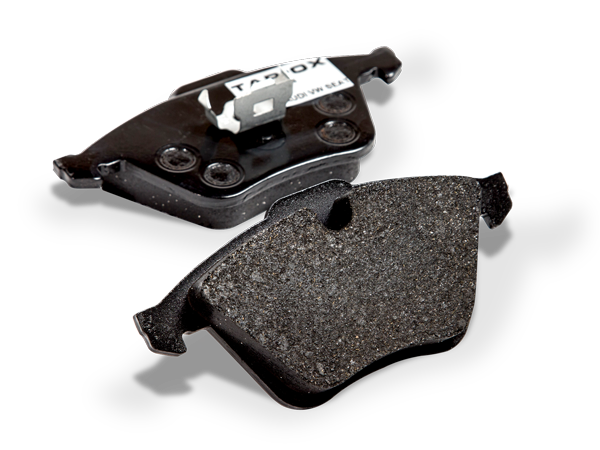
COMPETIZIONE .116
Progettate e sviluppate per l’ uso in competizione offrono affidabilita’ e prestazioni senza compromessi.
Caratterizzate da un alto coefficiente di frizione, una volta raggiunta la temperatura di esercizio, rilasciano uno strato protettivo sulla pista frenante che ne prolunga la durata anche dopo un uso intenso.
Il basso livello di comprimibilita’ offre un pedale estremamente modulabile.
L’eccezionale stabilita’ termica garantisce prestazioni costanti giro dopo giro.
Sopportano temperature fino a 900°C offrendo il meglio tra 300°C e 700°C.
Coefficiente d’ attrito
Normale = 0,51
A caldo = 0,44
